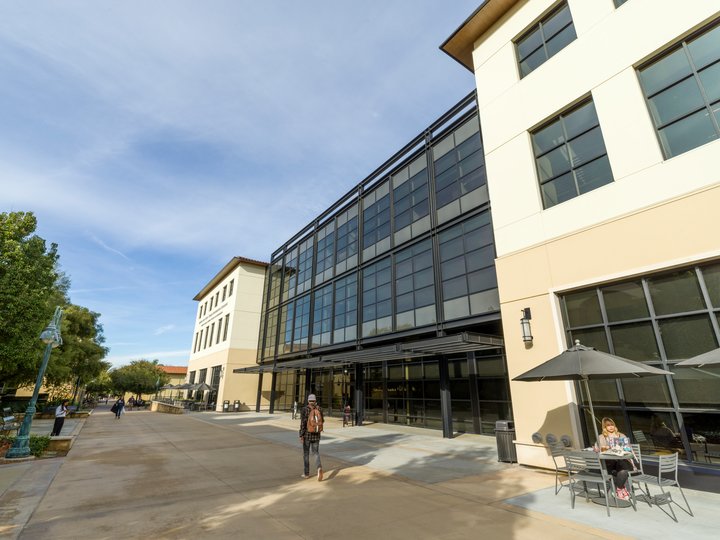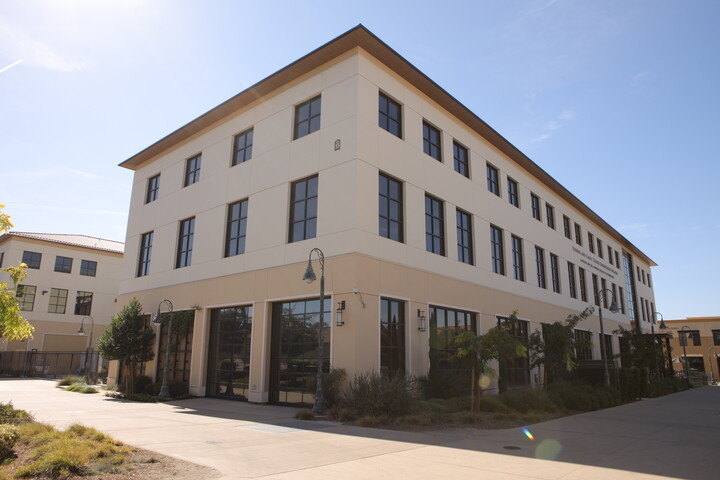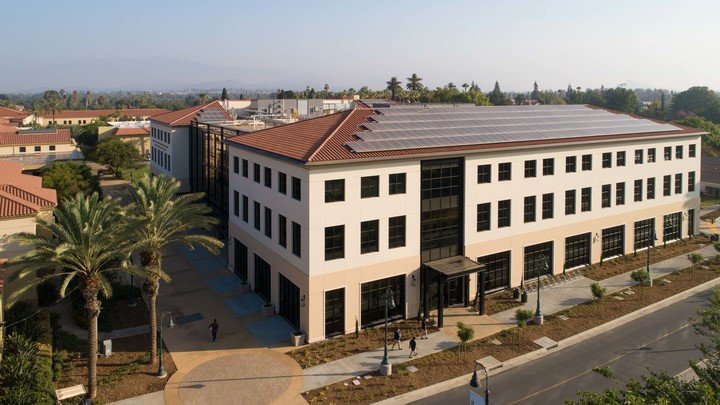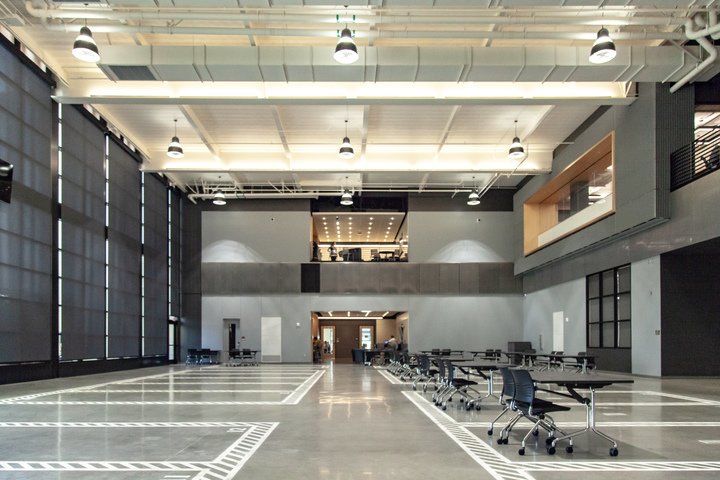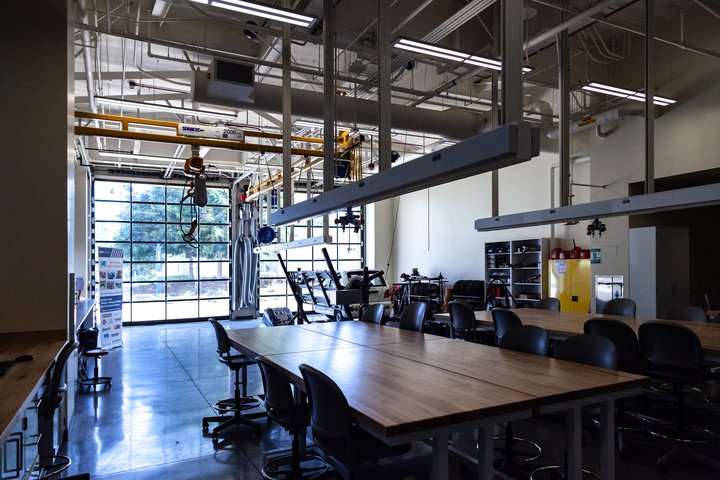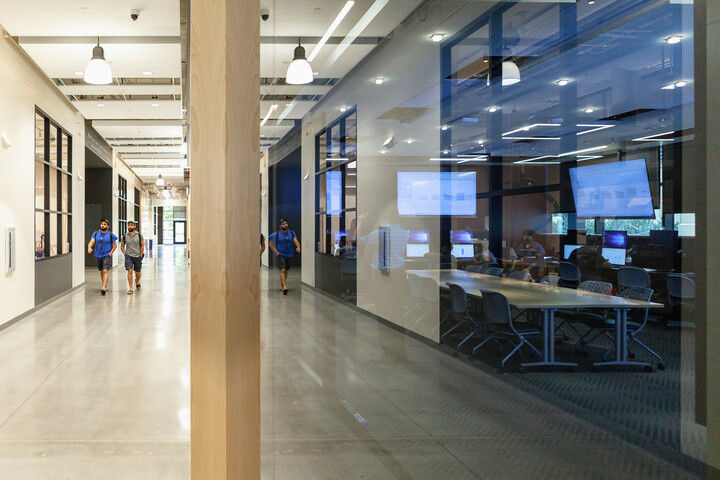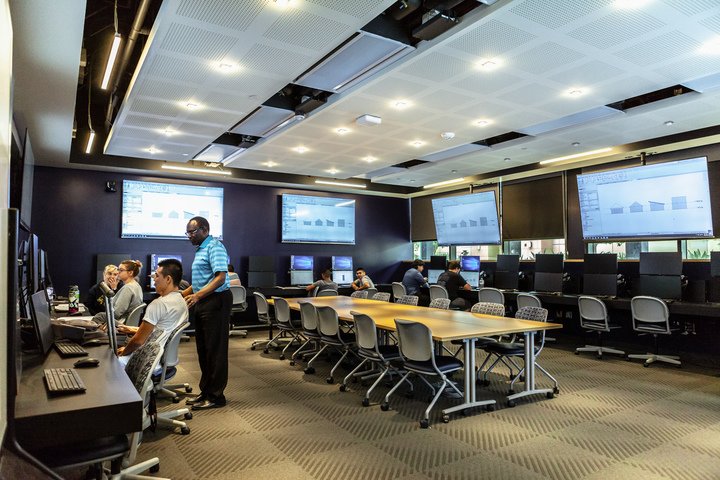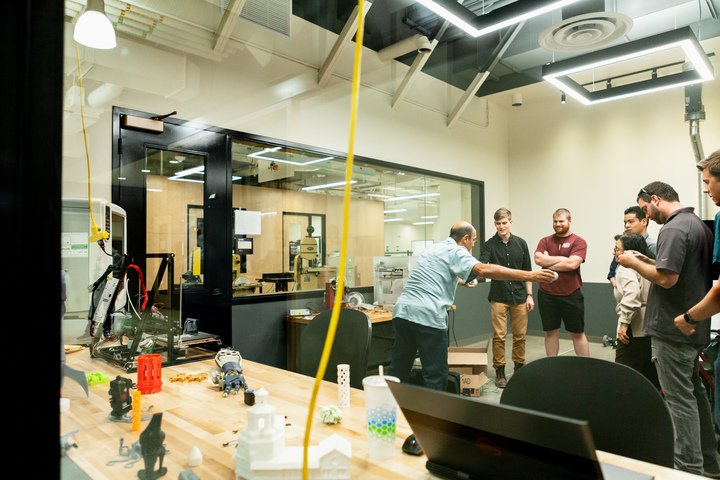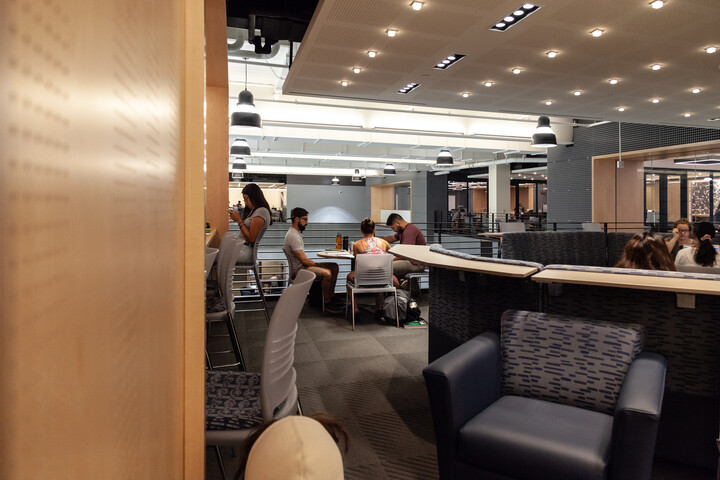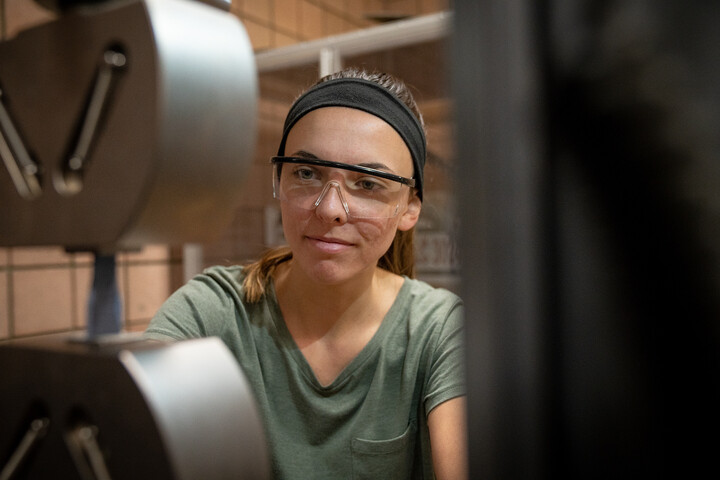Bachelor of Science in Civil Engineering, BSCE
Major in civil engineering to be a part of building a brighter, more sustainable future by fusing science with art and design to serve the ever-evolving needs of our modern society.
Improve Your Community Through Functional and Sustainable Design
You see the world differently. Instead of problems, you see opportunities to upgrade, reimagine and innovate the way our roads, bridges and buildings sustain our daily lives.
California Baptist University’s Bachelor of Science in Civil Engineering, BSCE program utilizes your curiosity and innovation, combining it with your interest in solving real-world infrastructure, design and sustainability obstacles to make a tangible impact on your community.
With the comprehensive, hands-on training, you gain a firm foundation in engineering, design and project management and are well prepared for entry-level civil engineering roles in government agencies, construction firms or the private sector.
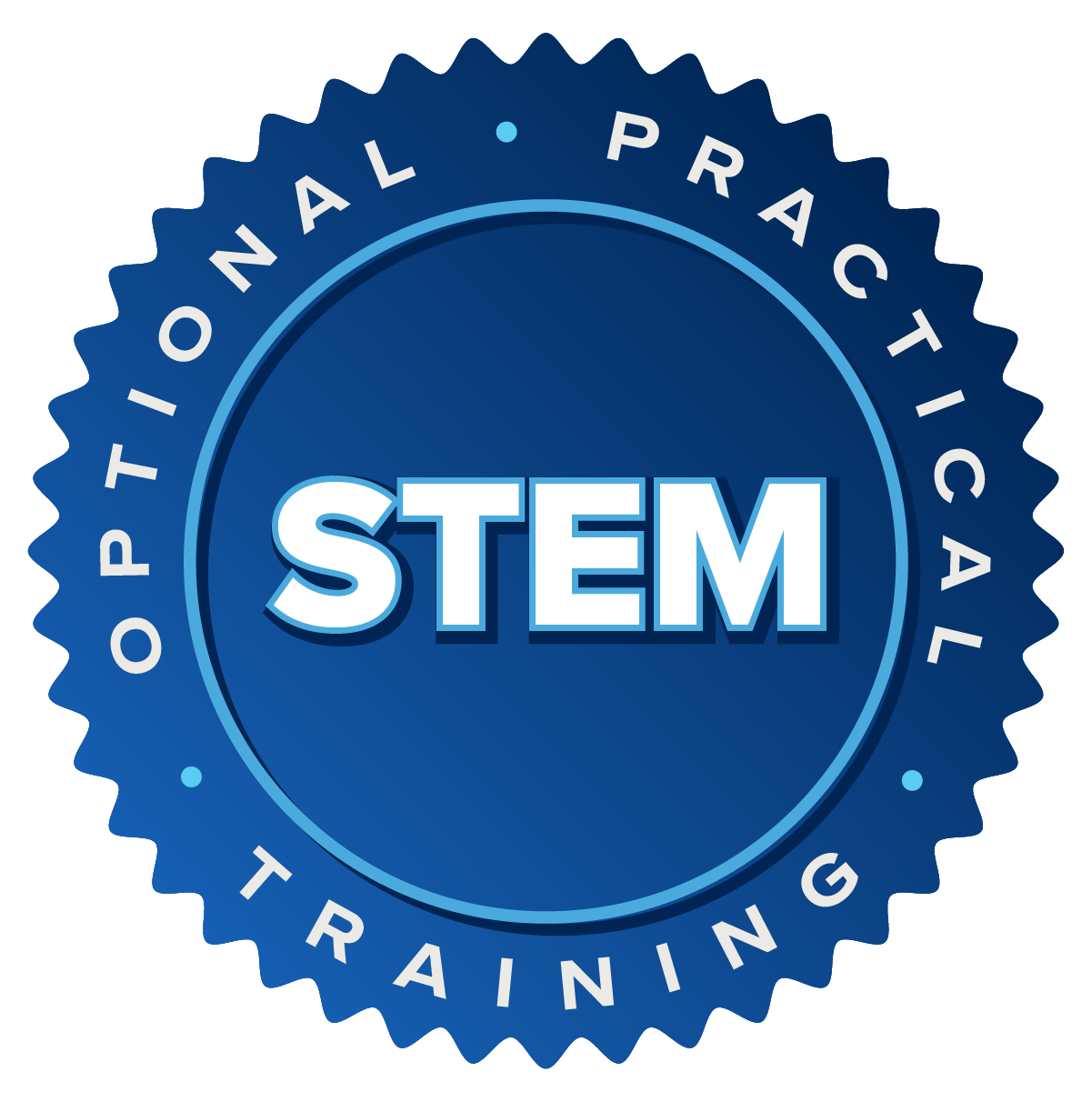
The engineering accelerated program will allow students to earn their Bachelor of Science in Civil Engineering in as little as 3 years.
Why Choose CBU’s Civil Engineering Major?
From the roads we drive on to the water we drink, civil engineers influence every aspect of our modern society. At CBU, you learn how to infuse a Christian worldview into your work as a civil engineer and improve the quality of life for local and global communities.
Read more about CBU's civil engineering program in this brochure (PDF).
Top-Notch Engineering Education
You have the opportunity to grow your God-given talents through traditional coursework and experiential learning opportunities, including labs, capstone projects and internships. These transformative experiences help you acquire a deep understanding of the interrelationship between infrastructure, the environment and its impacts on people. With this knowledge, you are equipped to create and implement innovative solutions to current problems.
Complete Your Civil Engineering Degree in Three Years
Every student’s degree path is different. If you are eager to begin your career sooner rather than later, you can enroll in the accelerated Bachelor of Science in Civil Engineering and earn your degree in as little as three years. With the accelerated degree, you can save money on tuition and other expenses and kick start your professional career.
Specialize in Seven Areas
CBU’s civil engineering degree gives students a base-level competency in the following seven specialized areas:
- Structural engineering
- Environmental engineering
- Hydrology and Water resources
- Geotechnical engineering
- Surveying
- Construction engineering
- Transportation
To tailor their learning experience, students can take two elective courses chosen from among these seven areas and deepen their knowledge.
Attend Conferences and Field Trips
Students attend the Pacific SouthWest Symposium, an annual student chapter competition by the American Society of Civil Engineers that allows civil engineering students to test their skills, network and engage in friendly competition. Students compete in civil engineering challenges, such as creating a steel bridge, a concrete canoe or clean drinking water in a natural disaster scenario.
Students also have the opportunity to go on field trips or take technical tours, such as touring the 11,000-foot Wilshire Grand Center in downtown LA, to see the possibilities that await them in the field of civil engineering.
What You'll Learn
In preparation for your career as a civil engineer, learn about:
- The core principles of engineering design and analysis.
- The fundamentals of computer programming, including high-level block structured language using C++, modern programming methodologies, algorithm development and more.
- Visualization languages.
- Microbiology, chemistry and physics for engineers.
- Surveying or the study of relative spatial measurements for engineering purposes, including the theory of errors and how to use surveying instruments, technology and software.
- Materials used for engineering, as well as their mechanical and physical properties and how stress and strain impact these materials.
- Foundational and advanced concepts of structural analysis and design.
- Soil and foundation engineering, covering lateral earth pressure, elastic stress distribution and how to size foundation systems.
- Environmental engineering, studying water supply and treatment, methodologies of sampling, data analysis and more.
- Best practices of construction management.
Program Details
Graduates of the BSCE degree program are expected to gain:
- EGR 1. An ability to identify, formulate, and solve complex engineering problems by applying principles of engineering, science, and mathematics.
- EGR 2. An ability to apply engineering design to produce solutions that meet specified needs with consideration of public health, safety, and welfare, as well as global, cultural, social, environmental and economic factors.
- EGR 3. An ability to communicate effectively with a range of audiences.
The BS in Civil Engineering program consists of core engineering requirements and civil engineering requirements broken down into the following:
- Lower-division core engineering requirements (14-19 units)
- Upper-division core engineering requirements (12 units)
- Math and science requirements (32 units)
- Lower-division civil engineering requirements (16 units)
- Upper-division civil engineering requirements (39 units)
Students must also meet the general education requirements. Specific civil engineering requirements may fulfill some general education requirements.
In addition to traditional coursework, students must also successfully pass the practice FE exam and complete 200 hours of a pre-approved, supervised internship, as well as an approved cross-cultural experience.
View the civil engineering bachelor’s degree flow charts on the courses page.
View the program enrollment and degree data.
EGR 251: Surveying
A study of the science and art of relative spatial measurements for engineering purposes. Special emphasis is placed on the theory of errors, use of modern surveying instruments, and field practice in transit-tape traversing, leveling and route surveying.
EGR 351: Structural Analysis I
Application of fundamental analysis concepts to the behavior of civil engineering structures and structural components. Analysis of statically determinate and indeterminate structures using classical methods such as slope deflection and moment distribution. Introduction to typical structural analysis computer programs.
EGR 453: Environmental Engineering I
Introductory study of water treatment and supply, wastewater collection and treatment common to rural and metropolitan areas. Laboratory principles and methods related to safety, sampling, data analysis, and measurement of selected physical, chemical, and biological characteristics of water and wastewater are introduced. Field trips are required.
The Gordon and Jill Bourns College of Engineering at California Baptist University is proud to offer an accelerated program that will allow you to earn your Bachelor of Science degree in as little as 3 years!
Accelerated 3-Year Civil Engineering Program Flowchart
Who should look into the 3-year civil engineering program?
- High school seniors accepted to CBU engineering who have taken AP Calculus AB exam with a score of 4 or above (or AP Calculus BC with a score of 3 or above) and two other AP subjects valid for degree requirements in the College of Engineering at CBU.
- STEM-minded, highly-motived, and hard-working high school sophomore and junior students who are planning to pursue an engineering degree.
What are the advantages of the 3-year civil engineering program?
- Saving tens of thousands of dollars on tuition and other expenses.
- Giving yourself a jump-start on your professional career.
- Allowing you to advance earlier into a post-graduate degree.
- Increasing your lifetime income by starting to work one year earlier.
How does it work?
- Inform your CBU admission counselor that you would like to pursue a 3-year BS degree in civil engineering.
- Send your AP or CLEP scores to CBU.
- Develop an academic plan to be reviewed and approved by your department chair before your first week of class at CBU. (Review the 3-year course flow charts for civil engineering.)
- Work with your faculty academic advisor who will monitor your progress and help you resolve schedule conflicts throughout the next three years.
- Expect to take a full load of 17-18 units of courses each semester.
- You will possibly need to take courses during the summer after your first and/or third year(s).
- A required 200-hour internship will mostly likely take place during the summer after your 2nd year. Therefore students on the 3-year plan might not be able to use that summer to take courses.

Jong-Wha Bai, Ph.D.
Professor of Civil Engineering and Construction Management
Chair, Department of Civil Engineering and Construction Management
Office Phone: 951-343-4935
E-mail: jbai@calbaptist.edu
Office Location: College of Engineering Building, TEGR 353

Humberto Gallegos, Ph.D.
Professor of Civil Engineering
Chair of the California Spatial Reference Center (CSRC) at UCSD
Office Phone: 951-343-4846
E-mail: hgallegos@calbaptist.edu
Office Location: Engineering Building, Room 345

Helen Jung, Ph.D.
Professor of Civil Engineering and Construction Management
Professor of Engineering
Office Phone: 951-343-4510
E-mail: hjung@calbaptist.edu
Office Location: College of Engineering Building, TEGR 350

Yeesock Kim, Ph.D.
Professor of Civil Engineering and Construction Management
Office Phone: 951-552-8785
E-mail: yekim@calbaptist.edu
Office Location: College of Engineering Building, TEGR 346

Jay Lee, Ph.D.
Professor of Construction Management
Office Phone: 951-552-8189
E-mail: jaylee@calbaptist.edu
Office Location: College of Engineering Building, TEGR 343

Jiliang Li, Ph.D.
Assistant Professor of Civil Engineering
Assistant Professor of Engineering
Office Phone: 951-552-8998
E-mail: jli@calbaptist.edu
Office Location: College of Engineering Building, TEGR 347

Michael Nalbandian, Ph.D.
Associate Professor of Civil Engineering
Office Phone: 951-552-8841
E-mail: mnalbandian@calbaptist.edu
Office Location: College of Engineering Building, TEGR 348

Euysup Shim, Ph.D.
Professor of Construction Management
Director of Construction Management Program
Office Phone: 951-552-8612
E-mail: eshim@calbaptist.edu
Office Location: TEGR 352
CBU's bachelor degree program in civil engineering, BSCE has been accredited by the Engineering Accreditation Commission of ABET, https://www.abet.org.
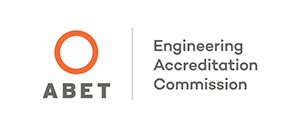
Videos
Learn in a State-of-the-Art Engineering Building
The Dennis and Carol Troesh Engineering Building at California Baptist University features numerous collaborative workspaces for students in addition to state-of-the-art classrooms and labs.
Careers with a Civil Engineering Degree
The U.S. Bureau of Labor Statistics projects civil engineers’ employment to increase by 6 percent annually for the next decade. This means approximately 22,100 job openings for civil engineers each year. With engineers retiring or moving to different careers and a nationwide emphasis on improving infrastructure, the demand for civil engineers and their expertise will increase.
Civil engineers’ median annual salary is $95,890 but ranges from $63,220 (lowest 10 percent) to $150,640 (highest 10 percent), depending on the industry, state of employment, education and experience.
Typical position titles of our CE graduates include:
- Junior Engineer
- Project Engineer
- Field Engineer
- Civil Engineer and Civil Engineering Analyst
- Assistant Engineer
- Assistant Surveyor
Related Programs
Build Your Future with CBU's BSCE Degree
CBU’s BS in Civil Engineering degree offers an immersive learning experience that hones your critical thinking skills, gives you the necessary engineering expertise and offers valuable hands-on learning opportunities. Step into God’s purpose for your life by pursuing a career path that creates a safer, more beautiful world. Request more information, or submit your application today.



